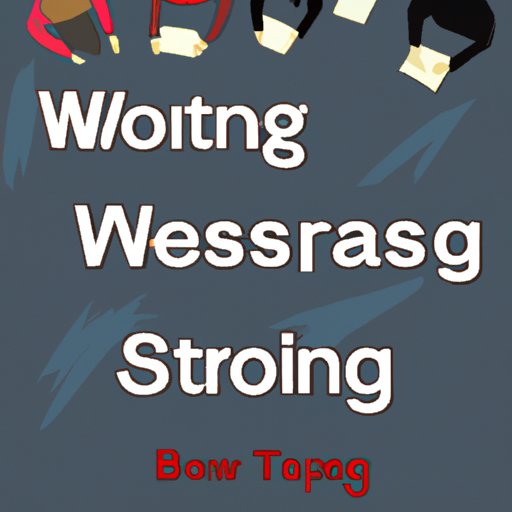Introduction
Writing is an art form that requires creativity, imagination, and skill. It can be a daunting prospect for those just starting out, but with the right tools and resources, anyone can learn how to write. In this article, we explore some tips, tricks, and advice on how to start writing for beginners.
Definition of Writing
Writing is the act of creating stories, essays, articles, or other forms of communication using language. Writing can take many forms, from fiction to non-fiction, poetry to journalism, and more. It’s a great way to express yourself, share ideas, and connect with others.

Reasons for wanting to learn how to write
There are many reasons why someone might want to learn how to write, such as expressing themselves creatively, developing their communication skills, or even pursuing a career in writing. Whatever your motivation, it’s possible to learn how to write, no matter your experience level.
Read Widely and Critically in Your Chosen Genre
One of the best ways to learn how to write is to read widely and critically in your chosen genre. Reading can help you get a better understanding of the craft of writing, as well as give you inspiration for your own work. Reading also allows you to familiarize yourself with the conventions of your chosen genre and gives you an idea of what makes a good story.
Benefits of Reading
Reading can expand your knowledge, help you develop your writing skills, and provide you with new ideas for your own work. Additionally, reading can help you gain insight into the writing process and provide you with models of how to structure your own writing. Reading is also a great way to relax and escape from reality.
Sources of Information
When it comes to finding sources of information, there are plenty of options. You can find books, magazines, and websites devoted to your chosen genre. You can also check out the library or local bookstores for recommendations. Additionally, you can search online for blogs and forums related to your topic.

Attend a Writing Workshop or Class
Another great way to learn how to write is to attend a writing workshop or class. These classes and workshops offer valuable insight into the writing process, as well as the opportunity to practice your skills in a supportive environment. Additionally, you can get feedback from your peers and instructors, which can help you improve your writing.

Advantages of Taking a Workshop or Class
Taking a writing workshop or class has several advantages. It can help you develop your skills, build confidence in your writing, and provide you with guidance and support from experienced writers. Additionally, workshops and classes can help you make connections with other writers, which can be invaluable when it comes to getting feedback on your work.

Where to Find Writing Workshops or Classes
You can find writing workshops or classes at your local college or university, as well as online. Additionally, there are numerous organizations and programs dedicated to helping aspiring writers, such as The Writers’ Workshop, National Novel Writing Month, and The Loft Literary Center. These programs offer a variety of workshops, classes, and events that can help you hone your skills.
Create a Writing Schedule that Works for You
Creating a writing schedule is an important step in learning how to write. A writing schedule helps ensure that you have time to write, edit, and revise your work. It also helps keep you motivated and on track when it comes to completing your projects.
Planning Out Time to Write
When it comes to planning out time to write, it’s important to be realistic. Consider how much time you can realistically devote to writing each day or week, and then create a schedule that works for you. Additionally, it’s a good idea to set aside time for editing and revising your work, which can often take longer than the initial writing process.
Set Achievable Writing Goals
Setting achievable writing goals is another important step in learning how to write. Having clear, measurable goals can help keep you motivated and focused on your writing. Additionally, setting goals can help you measure your progress and stay on track when it comes to completing your projects.
Types of Writing Goals
Your writing goals should be based on what you want to achieve with your writing. Examples of writing goals include completing a certain number of words per day or week, submitting your work for publication, or even just finishing a first draft. Additionally, it’s important to set deadlines for yourself so that you don’t get too far behind on your projects.
How to Measure Progress
Measuring progress is an important part of achieving your writing goals. Tracking your progress can help you stay motivated and see how far you’ve come. You can measure your progress by keeping track of the words you’ve written, the number of drafts you’ve completed, or the number of submissions you’ve made. Additionally, you can reward yourself for meeting your goals.
Start a Blog to Practice Writing
Starting a blog is a great way to practice writing and get feedback on your work. Blogging can help you hone your writing skills and get used to the process of writing regularly. Additionally, blogging can help you build an audience and connect with other writers.
Benefits of Starting a Blog
Starting a blog has several benefits. It can help you practice your writing skills, get feedback from readers, and even make money if you choose to monetize your blog. Additionally, blogging can help you build an audience, make connections with other writers, and even open up opportunities for freelance work.
Tips for Maintaining a Blog
Maintaining a blog can be a lot of work, so it’s important to have a plan. Start by setting a schedule for yourself and sticking to it. Additionally, make sure to update your blog regularly with fresh content, and be sure to respond to comments and questions from readers. Finally, promote your blog through social media and other channels to get more readers.
Join a Writing Group
Joining a writing group is another great way to learn how to write. Writing groups provide a supportive environment where you can get feedback on your work and connect with other writers. Additionally, writing groups can help you stay motivated and accountable when it comes to working on your projects.

Advantages of Joining a Writing Group
Joining a writing group has several advantages. It can provide you with support and encouragement from other writers, as well as feedback on your work. Additionally, writing groups can help you stay motivated and accountable, as well as giving you the opportunity to network with other writers.
Finding a Writing Group
There are a variety of ways to find a writing group. You can search online for local writing groups, or you can reach out to other writers in your area. Additionally, you can join an online writing group or even start your own writing group. Once you’ve found a writing group, be sure to attend meetings regularly and participate in discussions.
Find a Mentor Who Can Offer Advice and Support
Having a mentor is a great way to learn how to write. A mentor can provide you with advice and support, as well as feedback on your work. Additionally, having a mentor can help you stay motivated and accountable when it comes to completing your projects.
Benefits of Having a Mentor
Having a mentor has several benefits. Your mentor can provide you with advice and support, as well as feedback on your work. Additionally, your mentor can help you stay motivated and accountable, and they can even introduce you to other writers and editors who can help you further your career.
How to Find a Mentor
Finding a mentor can be a challenge, but there are a few ways to do it. You can reach out to writers or editors you admire, or you can join an online writing group and ask for mentors. Additionally, you can attend writing conferences and workshops, where you can meet potential mentors in person. Once you’ve found a mentor, be sure to communicate regularly and take advantage of all the advice and support they have to offer.
Conclusion
Learning how to write can be a daunting task, but with the right tools and resources, anyone can become a writer. By reading widely, attending a writing workshop or class, creating a writing schedule, setting achievable goals, starting a blog, joining a writing group, and finding a mentor, you can become a successful writer. With dedication, hard work, and the right advice, you can learn how to write and pursue your writing dreams.
(Note: Is this article not meeting your expectations? Do you have knowledge or insights to share? Unlock new opportunities and expand your reach by joining our authors team. Click Registration to join us and share your expertise with our readers.)
